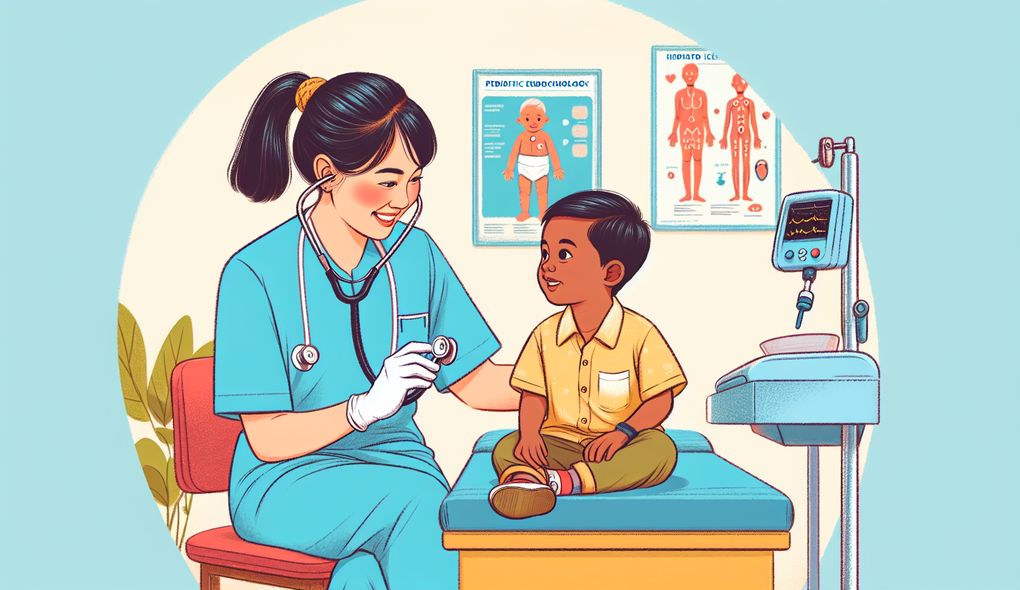Tell me about a challenging patient or family situation you have encountered. How did you handle it?
INTERMEDIATE LEVEL

Sample answer to the question:
I once had a challenging patient situation when I was working in a pediatric endocrinology clinic. There was a young boy with diabetes who was having a difficult time managing his blood sugar levels. His family was overwhelmed and struggling to understand the complexities of his condition. I took the initiative to spend extra time with the family, providing them with education about diabetes management and helping them develop a routine for checking blood sugar levels and administering insulin. I also referred them to a nutritionist who could help them with meal planning. By offering support and guidance, I was able to empower the family to take better control of their child's diabetes. It was a challenging situation, but seeing the improvement in the child's health and the relief on the family's faces made it incredibly rewarding.
Here is a more solid answer:
In my role as a Pediatric Endocrinology Nurse, I encountered a challenging patient situation involving a young girl with a rare endocrine disorder. Her condition required complex medication administration and frequent monitoring of hormone levels. The family was overwhelmed and had difficulty understanding the treatment plan. I utilized my strong clinical skills to educate them about the disease process, the importance of medication adherence, and potential side effects. I provided detailed instructions on medication administration, including visual aids and demonstrations. To ensure effective communication, I utilized my excellent patient education abilities to break down complex medical terminology into layman's terms. I also collaborated closely with the pediatric endocrinologist and other healthcare professionals to develop a comprehensive treatment plan that addressed the patient's unique needs. By working together as a multidisciplinary team, we ensured continuity of care and provided holistic support to the family. This challenging situation required empathy and patience, which I demonstrated by actively listening to the family's concerns, addressing their fears, and providing emotional support throughout the treatment process. Despite the complexities of the case, I maintained a positive and empathetic attitude, which helped alleviate the family's stress and built trust. Through continuous monitoring and adjustment of the treatment plan, we were able to achieve positive outcomes for the patient and her family.
Why is this a more solid answer?
The solid answer provides specific examples of how the candidate utilized their strong clinical skills, communication abilities, empathy, patience, and ability to work in a multidisciplinary team to handle a challenging patient situation. It explains the steps taken and the outcomes achieved. However, it can still be improved by providing more details about time management and organizational skills, as well as patient care documentation.
An example of a exceptional answer:
One particularly challenging patient situation I encountered as a Pediatric Endocrinology Nurse was when I had to assist a teenage patient with a newly diagnosed thyroid disorder. The patient was initially resistant to the treatment plan and had difficulty accepting the long-term implications of the condition. To address this, I scheduled dedicated education sessions to explain the importance of medication adherence, routine monitoring, and lifestyle modifications. I tailored the information to the patient's age and interests, using age-appropriate resources and highlighting the impact of proper management on their overall well-being and future goals. Additionally, I recognized the importance of involving the patient's family as secondary sources of support and education. I conducted family meetings to address any concerns and provide ongoing guidance. Furthermore, I implemented time management and organizational skills to ensure smooth coordination of appointments, laboratory tests, and medication refills. By utilizing electronic health record systems effectively, I minimized the risk of errors and ensured accurate documentation of patient care. This challenging patient situation also required sensitivity and cultural awareness. As the patient came from a diverse background, I collaborated with an interpreter when necessary and respected their cultural beliefs and preferences. The exceptional outcome was a complete turnaround in the patient's attitude, compliance, and overall understanding of the condition. The patient actively began taking ownership of their care and demonstrated positive lifestyle changes. This case emphasized the importance of a holistic approach and the need to address not only the medical aspects but also the psychological and social dimensions of patient care.
Why is this an exceptional answer?
The exceptional answer provides detailed examples of how the candidate handled a challenging patient situation, showcasing their expertise in pediatric endocrinology nursing. It demonstrates their ability to tailor education to patients of different ages and backgrounds, their commitment to time management and organizational skills, and their cultural sensitivity. The answer also highlights the exceptional outcome achieved through their efforts. The focus on the holistic approach and the consideration of psychological and social aspects of patient care align well with the job description.
How to prepare for this question:
- Review your experience with challenging patient or family situations in pediatric endocrinology nursing.
- Identify specific examples where you utilized strong clinical skills, communication abilities, and empathy.
- Reflect on times when you successfully worked as part of a multidisciplinary team.
- Think about how you managed time and organized patient care documentation in complex treatment plans.
- Consider any instances where you demonstrated cultural sensitivity and adaptability to diverse patient backgrounds.
- Practice discussing challenging situations and the steps you took to address them, emphasizing positive outcomes and lessons learned.
What are interviewers evaluating with this question?
- strong clinical skills
- excellent communication and patient education abilities
- empathy and patience
- ability to work well in a multidisciplinary team

